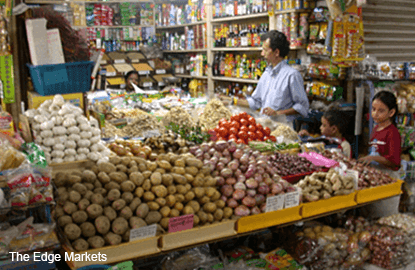
This article first appeared in The Edge Financial Daily, on November 2, 2015.
KUALA LUMPUR: Although there are concerns that the Trans-Pacific Partnership (TPP) agreement will be disadvantageous to Malaysia, industry experts say the trade deal will actually achieve the reverse and give Malaysian companies a level playing field as everyone has to play by the same rules.
Institute of Democracy and Economic Affairs (Ideas) chief executive officer Wan Saiful Wan Jan said under the deal, the rules remain the same for all countries and in fact, Malaysia is put at a huge advantage being one of the founding members.
“There are fears that US-based companies will come and dominate us, that we will lose our sovereignty. But we forget, all companies and countries are subject to rules and regulations [under the TPP] and everyone has to behave in a predictable manner and the rules will make sure everyone is equalised,” he said at the Ideas’ forum “TPP: Will America Bully Us?” on Saturday.
“And recently, [Indonesian] President Joko Widodo made an announcement that Indonesia is interested to join the TPP while there were elements here who wanted us to leave the negotiating table as far back as three years ago,” said Wan Saiful.
“What happened to us? We used to be so confident. I am really disappointed and frustrated about this, about talks of other companies coming into Malaysia [and affecting the business landscape].
“What about us going to other countries and taking over their companies like how we took over Guthrie (Kumpulan Guthrie Bhd) and brought it back to Malaysia, or companies like Petronas (Petroliam Nasional Bhd) competing on a global level?” he said.
On Oct 5, the United States, Japan and 10 other Pacific Rim nations including Malaysia reached a final agreement on the largest regional trade accord in history. However, Malaysia will still need to get Parliament’s nod before signing the TPP agreement.
Nevertheless, Wan Saiful admitted that it would be foolhardy for Malaysia to simply enter into the trade pact without preparing its economy for upcoming competition.
“If we can’t change, it means we’re not ‘man’ enough or strong enough to take on everyone else. We need to change and start to prepare [for TPP]. I’m not saying we should just take the bull by the horns in a stupid way, no. We need to be prepared for it.
“Currently the economy is dominated by the government. You have all seen what happens when one company, whose name must not be mentioned lest I be arrested, has impacted the economy,” quipped Wan Saiful.
“This is what happens when the government wants to go into business and stay in politics. If they want to be in business, they should leave politics, but it seems they make more money from business by being in politics,” he said.
Wan Saiful’s sentiments on being prepared for competition was echoed by Mexican Ambassador to Malaysia Carlos Isauro Felix Coron, citing Mexico’s experience under the North American Free Trade Agreement (Nafta).
“Once you get into these kinds of free trade agreements, there are rules there. Everyone has to follow it. But you have to be prepared. At the time we entered Nafta, our textile industry was nearly wiped out because it wasn’t very productive and was protected by government subsidies.
“These weren’t even rational subsidies, just subsidies to maintain the status quo. Our industry did not have modern technology and we had low-skilled workers. But it was a lesson learnt, [and] now our textile players have adapted and adopted,” said Corona.
“So Malaysia needs to review its efficiency and competitiveness. If you are not willing to invest, you will face the same issues [as Mexico back then],” he advised.
Despite the initial setback to its textile industry, Corona believes that the benefits of Nafta far outweigh the costs, seeing that Mexico is now the 15th-largest economy in the world where between 1994 and 2012 its trade with the US increased fivefold to US$494 billion in 2012 with a daily border trade worth around US$1 billion.
Corona pointed out that, post-Nafta, Mexico had also reduced its reliance as a commodities exporter to include other industries such as aerospace, automotive, electrics, and electronics manufacturing.
The forum also brought about Vietnam’s experience through the lens of leading Vietnamese economist and former head of Vietnam’s Central Institute for Economic Management, Dr Le Dang Doanh.
“We already have a bilateral trade agreement with the US, but there were some incidences where we had to deal with their lobby groups. One was when their industry players used the anti-dumping laws against Chinese shrimpers.
“To strengthen their case, they had included Vietnamese shrimpers as well even though it had nothing to do with us. It affected our exports to the US and it was only after the 2004 election and a lot of petitions that the decision for Vietnam was reversed,” said Le Dang.
However, due to geopolitical reasons, Vietnam is still keen on joining the TPP despite having been “bullied” by the US.
“Vietnam wants to join the TPP because we need to reduce our economic dependency on China. In this respect, we are also looking at other trade agreements including with Europe. It is a bitter, but necessary pill to take and our business community wants it,” said Le Dang.